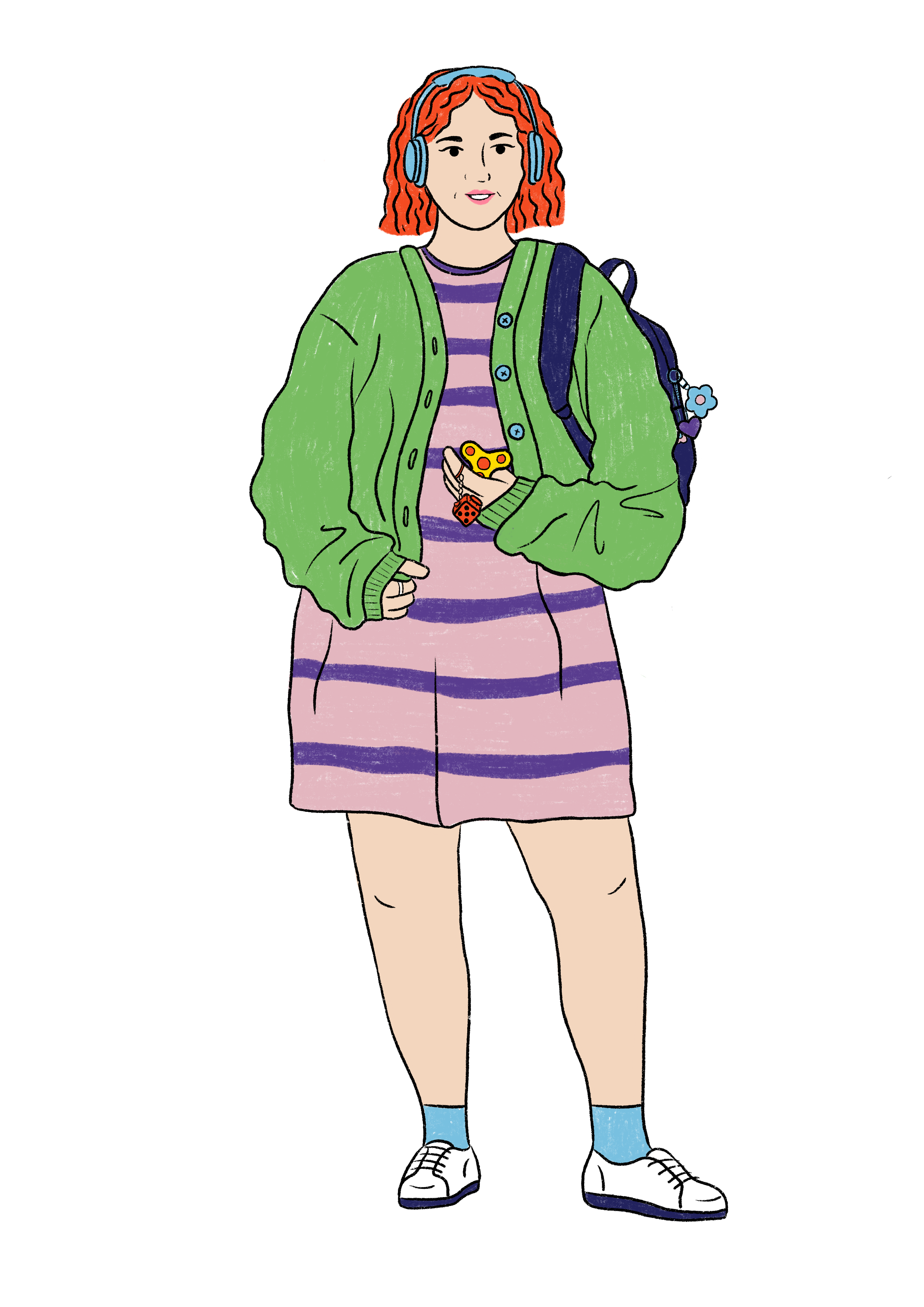Meet Nerina, who is neurodivergent (has autism). Learn about Nerina’s accessibility requirements to better understand how to support students who have similar conditions.
Nerina is a 24-year-old student who uses she or they pronouns. Their life motto is “Do what makes you, you”. They live with their aunt and companion dog, and are passionate about advocating for disability and neurodivergence. Nerina hopes that hopes their learning experience is reaffirming and encourages the unique contributions that they, as a neurodivergent student can bring.
Here are some of the things that Nerina needs in order to be able to participate in class:
- Clear language: explain directions clearly and avoid sarcasm, metaphor, or unclear turns of phrase, which Nerina may interpret literally. Present course materials and instructions in a structured way using clear and concise (literal) language.
- Opportunities for communication with tutor/lecturer: Nerina may wish to meet before the subject starts to discuss their needs and reduce anxiety. Scheduling drop-in times/consult hours during the first few weeks of the subject can be helpful for all students to approach the academic and discuss their needs. Further opportunities for 1-1 check-ins would also benefit Nerina.
- Adequate time for preparation: try to provide course material online and ahead of class when possible. Supportive materials like subject word lists, glossaries of terms and acronyms are also helpful. Identifying where there is room for creative liberty in subject work can inspire neurodivergent students to better engage with the content.
- Support for group work: help the student establish their group and offer alternative approaches if group work becomes too stressful. In some instances Nerina may feel comfortable to disclose their neurodivergence to the group, other times Nerina may not feel comfortable disclosing to other students. Supporting Nerina to discuss their communication preferences with the group can be helpful.
- Be understanding of different behaviours: Nerina may engage in stimming. Stims are self-stimulatory behaviours that involve repetitive movements or sounds. This is an important way for autistic students to self-regulate and may be present as a result of both ‘positive’ and ‘negative’ feelings. It’s important that the academic does not draw attention to these behaviours or mistake them as disruptive or a sign something is ‘wrong’. Some students may need to use a fidget toy, draw, use headphones and/or use sunglasses indoors.
Here are some of the frustrations that Nerina deals with in daily life.
- Ableism and other prejudices remain a prominent source of anxiety that hinder her from expressing her genuine selves. Nerina hopes the experience is reaffirming and encourages the unique contributions that they, as a neurodivergent student can bring.
- Worried that tutor may not be accommodating or communicative. Tutor may not provide time to meet, or may forget Nerina’s accessibility requirements over time.
Online
- Their demeanour can be perceived as rude or ‘unusual’ – e.g. lack of eye contact, direct questions. However, the way they communicate is part of their neurodivergence. People may also mistake them as being lazy or incompetent in group scenarios, and this can also make it hard for Nerina to for deep and meaningful social connections.
- Unclear language in class instructions or demonstrations, and in feedback.
- May struggle with using Canvas and need instructions to get started, will also struggle if Canvas sites are not well organised or structured.
- Finds it difficult to follow lectures with no captions or separate accompanying slides.
On campus
- Is very sensitive to sounds, sights and smells on campus. Nerina appreciates it when teaching staff try to be aware of, or ask about triggers and make appropriate modifications to the lesson plans. For example, teaching staff may avoid including flashing images and videos in their demonstrations.
- High stress and anxiety, which may lead to fidgeting, questioning and/or repetitive behaviours. Nerina can also experience ‘shutdowns’ where they can become unresponsive or less talkative. It is important that if Nerina does not immediately respond to what they say, staff understand that they need time to process the information and regulate their mental stress. Staff can offer neurodivergent students the option to write down their questions or comments, instead of a verbal response, to aid with communication.
- May struggle to maintain appropriate levels of eye contact (could be excessive, or too little) with staff and fellow students.
- Changes to timetable/room may cause additional anxiety.
- Not enough quiet study spaces in faculty buildings.
- Breaks might not be offered during long classes
The following resources from ADCET provide advice on supporting autistic students.
Please note
- Everyone’s access needs are different, and what works for one person may not work for another.
- Other health conditions can make access needs more complex or change how they show up day to day.
- Some people may have other disabilities they don’t mention if they aren’t relevant, but these may still affect them at times.
